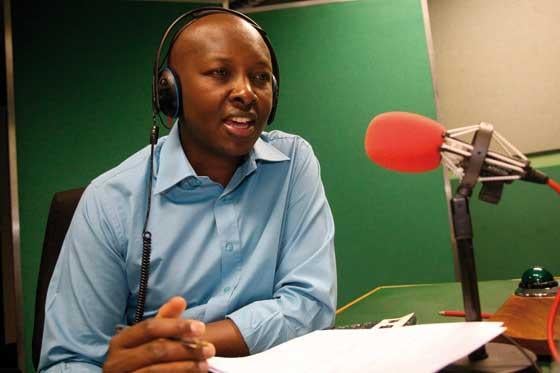
Monday 30 July
It takes great courage to face my desk this morning knowing that half the staff are worshiping the sun in Turkey, Portugal, Spain and other popular destinations. A telephone call from Harare jolts me back to work. Our Zimbabwe correspondent has been summoned to appear before the Media and Information Commission for a hearing on his BBC accreditation application renewal.
I have supplied the Zimbabwean government with every document it required. The reporter is Zimbabwean – a key requirement for accreditation – and he has kept within the law in his reporting, but his stories have inevitably tended to tickle sensitive toes. Now those same feet have to vote for an extension of his permit. ‘They’ve given me a hearing date, they say they don’t require you to send any more documents, so we just wait’, is the advice from my reporter. I’ll wait.
Tuesday 31 July
I leave home with a smile on my lips this morning, following a great story on Network Africa today. You see, Nigerians have a peculiar affinity for titles. Plain Mr, Miss and Mrs won’t do. Instead it’s Chief, Dr, Engineer and the like. Don’t be surprised if the waiter at a downtown pepper-soup-and-goat-meat joint in Lagos goes by the name of Professor Dr Chief So-and-So. And this morning we broadcast a fantastic piece by our reporter in Abuja exploring Nigeria’s obsession with titles. The hundreds of text message reactions from our listeners nearly caused IT failure in the studio. Great piece, great humour.
Wednesday 1 August
Time for a sober meeting, with our new reporter for Juba, southern Sudan. After the peace deal that ended more than two decades of civil war in southern Sudan, the people are rebuilding their country so they can realise the dreams they’ve nurtured in exile in the place they call home. Three months ago we sent one of our producers to set up a base in Juba to help report developments in the southern part of the country, which is always in danger of being overshadowed by the crisis in western Darfur.
But now the reporter is back, warning that without proper funding for the post it will be unsustainable because of the astronomical cost of living. The combination of a local economy distorted by United Nations/non-governmental organisation money and personnel and lack of basic infrastructure makes it an extremely difficult place to live in; a hotel room (tent accommodation) costs about 200 Sudanese pounds (£49) a day. Our programme budget can’t afford this, but we can’t ignore the story, so what do we do?
Thursday 2 August
The Kenyan health minister has been arrested and detained by police for allegedly storming into a police station to force the release of a female civil rights activist who was campaigning against parliamentary proposals for a hefty ‘retirement’ package for MPs. Even by Kenyan standards, where politics is the art of the impossible, this is pretty bizarre. An interview with the cabinet minister’s lawyer by our Nairobi reporter is top of the news, and the texters have another field day.
Friday 3 August
The BBC director general’s ban on competitions has hit our programmes. From January until June we ran a radio competition on Network Africa exploring African identity. We asked our listeners to write about what shapes their identity: is it tribe, community, religion, country of birth? We received hundreds of entries, but after short-listing the final five, to be put to a text message vote so listeners across Africa can pick the winning entry, we’ve hit a snag: the ban on any form of competition involving listeners calling or texting the programme means we have to delay the result.
I met the production team to explain the advice from the BBC editorial policy unit. The planned fully funded, one-week visit to London in the summer for the lucky winner will have to wait.
Saturday 4 and Sunday 5 August
Time to put Africa on hold for a while – including the Sierra Leone elections, fuel shortage in South Africa and the outcome of the Darfur peace talks in Tanzania. I’ll distract myself with badminton, back garden volleyball and a hazardous swimming competition with my kids. Monday’s SOS phone calls, meetings and breaking news will no doubt heal my broken bones from the weekend.
Joseph Warungu is editor of the BBC’s two flagship daily news and current affairs radio programmes for Africa as well as a quarterly magazine, Focus on Africa
Email pged@pressgazette.co.uk to point out mistakes, provide story tips or send in a letter for publication on our "Letters Page" blog

